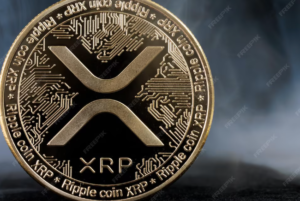$BRK.A $BRK.B $BTC
#WarrenBuffett #GregAbel #BerkshireHathaway #Bitcoin #Crypto #Investing #Finance #StockMarket #Cryptocurrency #Blockchain #FinancialNews #CryptoAdoption
As Greg Abel prepares to assume the helm of Berkshire Hathaway, the investment community is abuzz with speculation about the future direction of the conglomerate, particularly its stance toward cryptocurrencies like Bitcoin. To date, Berkshire Hathaway, under the stewardship of Warren Buffett, has maintained a cautious, if not outright skeptical, stance toward digital currencies. Buffett himself has famously criticized Bitcoin, calling it “rat poison squared,” a sentiment that underscores the company’s conservative investment philosophy centered around tangible assets and stable, profitable enterprises. However, the ascent of Abel, currently vice chairman of non-insurance operations at Berkshire, could signal a potential shift in strategy, given the rapidly evolving financial landscape and the growing integration of crypto assets into mainstream finance.
The possibility of Berkshire Hathaway diversifying into cryptocurrencies presents a fascinating scenario, with implications for both the company’s portfolio strategy and the wider crypto market. For years, Berkshire Hathaway has thrived on investments in traditional sectors such as insurance, energy, and consumer goods. Integration of cryptocurrencies, a class of assets known for their volatility but also for offering substantial growth opportunities, would mark a significant pivot in the company’s strategy. Abel’s approach to cryptocurrency and blockchain technology, areas where Buffett has refrained from venturing, will be closely watched by investors and market analysts alike. An endorsement from a conglomerate of Berkshire’s calibre could serve as a catalyst for broader acceptance of crypto among institutional investors.
However, skepticism remains about whether Abel will indeed steer Berkshire toward crypto investments. Given Buffett’s influence and the company’s longstanding investment philosophy, any deviation toward high-risk assets such as Bitcoin would require a considerable reassessment of risk and potential returns. Additionally, Abel’s own views on cryptocurrency have yet to be as prominently articulated as Buffett’s, leaving room for speculation. The dynamics of corporate governance at Berkshire, combined with Abel’s respect for Buffett’s leadership legacy, suggest that any transition towards cryptocurrency would be cautious and measured, rather than a wholesale pivot.
Given these factors, the broader financial community is keenly watching for any signs of change in Berkshire Hathaway’s investment stance. The incoming CEO’s knack for recognizing and seizing new market opportunities—without straying too far from the foundational principles laid down by Buffett—will be critical. As the digital asset space continues to mature, with increased regulatory clarity and institutional adoption, even traditionally conservative investors are reassessing their positions. Whether Greg Abel will lead Berkshire Hathaway into the realm of Bitcoin and crypto investments remains an open question, but it is one that underscores the broader dialogue on the evolving nature of investment in the twenty-first century.











Comments are closed.